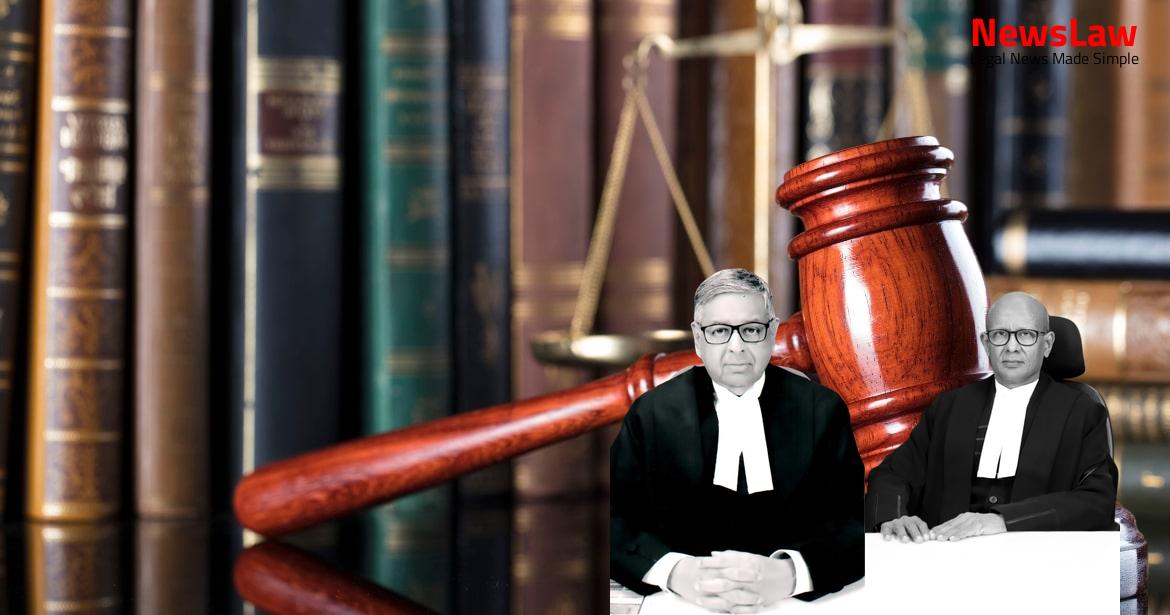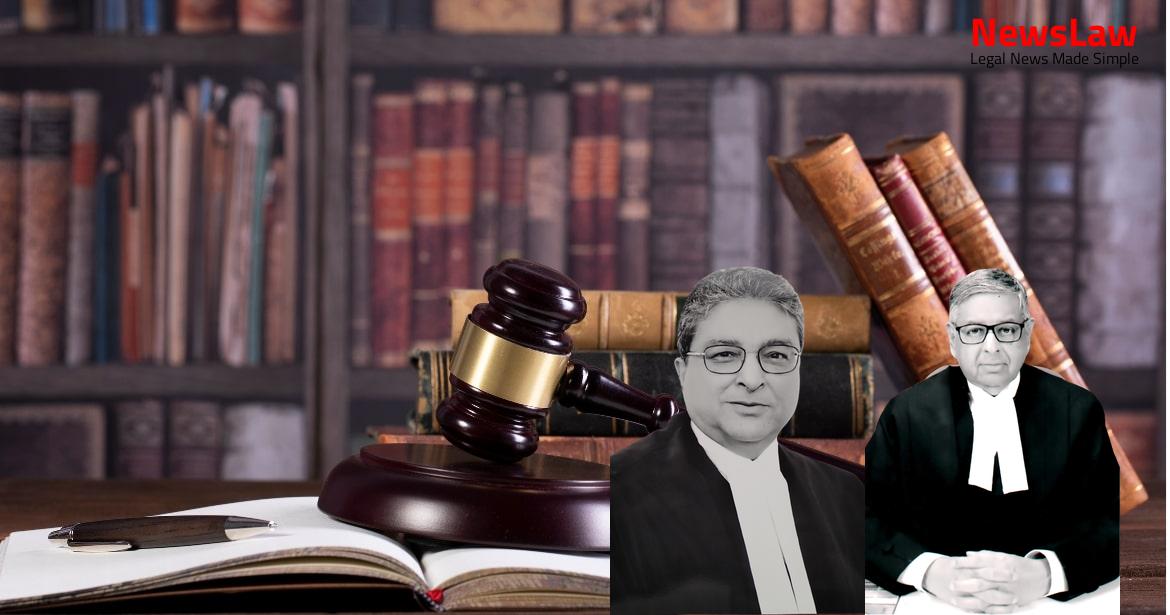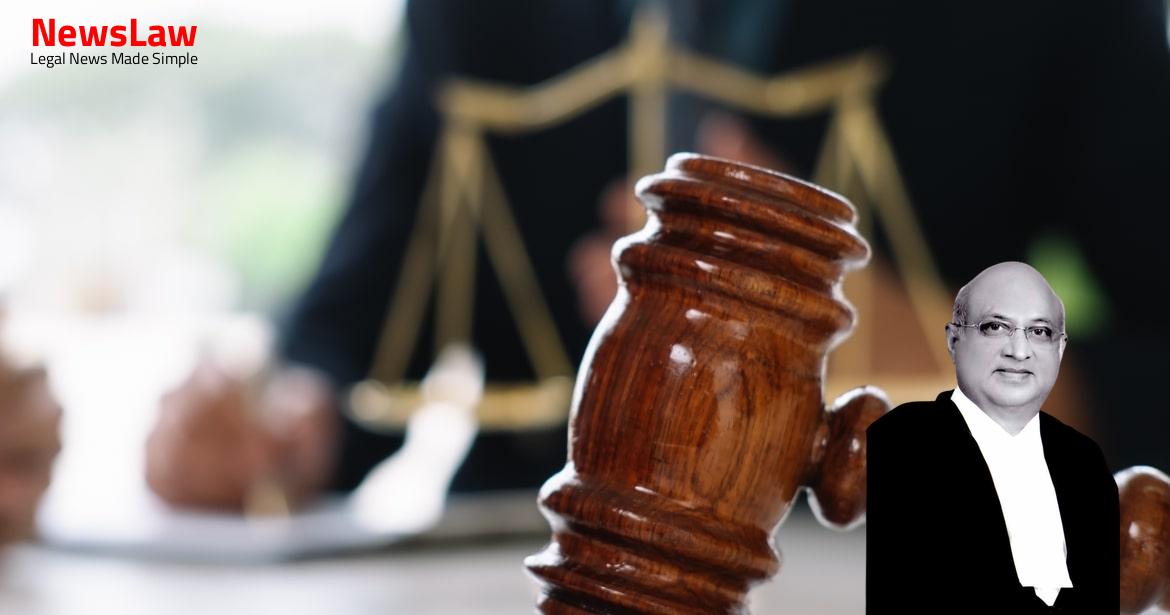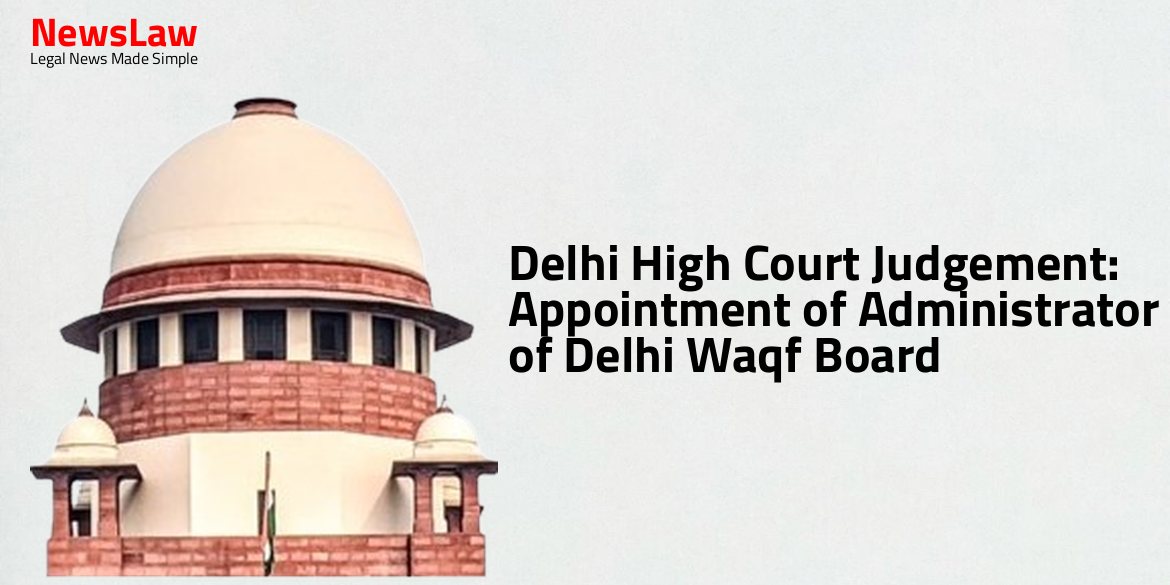The legal case of Laxmanrao vs. Vitthalrao revolves around a family business and property dispute. Late Laxmanrao and Vitthalrao were involved in a garage business, with disagreements arising over ownership and joint family status. The Appellate Court ruled in favor of Laxmanrao, establishing the garage business as a Joint Hindu Family business. However, conflicting claims and arguments persisted regarding ancestral property and individual ownership. Let’s delve into the details of this intricate legal battle.
Facts
- Late Laxmanrao started the garage business in 1964 by taking a site on rent at Badnera Road, Amravati.
- Plaintiff’s son filed a suit for damages for defamation, where late Laxmanrao mentioned a joint family business named Gajanan Automobiles.
- Defendant No 2 purchased land in different names and had separate machinery and equipment for the business.
- There were disputes regarding the ownership of plots and business structures within the family.
- The Trial Court held that certain properties were self-acquired by Late Laxmanrao and Defendant No 2.
- Defendant Nos. 1 to 4 filed a counter-claim seeking a permanent injunction against the plaintiff.
- The plaintiff claimed a half-share in the suit properties and demanded partition.
- Different sale deeds were mentioned for property purchases by late Laxmanrao and others.
- The joint garage business started in 1962 continued after Laxmanrao’s death.
- Disagreements arose regarding the joint family status and properties leading to legal notices and counter-claims.
- By judgment dated 14.11.2008, the Appellate Court decreed the plaintiff’s suit in its entirety.
- The properties covered by certain documents were excluded from partition by the order dated 22.03.2019.
- The Trial Court found in favor of defendants regarding their counter-claim for perpetual injunction.
- Evidence showed jointness in the family business between the plaintiff and his late brother.
- The Appellate Court concluded the garage business was a Joint Hindu Family business.
- A different view was taken by the Appellate Court compared to the Trial Court regarding ancestral property at Mouza Shendola.
- Plea regarding no income from ancestral land was not permissible as it was raised for the first time during the second appeal.
Also Read: Sonai Election Dispute: Appellant vs. Respondent
Issue
- The main issue in the judgement is whether the suit property shown in the schedule is joint family property of plaintiff (Laxmanrao) and defendants (Vitthalrao and others) and was purchased out of joint family business.
- The trial court erred in holding that the plaintiff failed to prove that the suit property is not joint family property and was not purchased out of joint family business.
- Questions regarding the valuation of the suit by the plaintiff have been raised.
- The trial court’s decision on the entitlement of defendant nos. 1 to 4 to run the suit ramps on the property is being questioned.
- Dispute exists on whether the plaintiff is entitled to partition and separate possession of all suit properties except the agricultural land field survey no. 22/1-A of mouja Shendola.
- The key points include determining the ownership status of the suit property, establishing the plaintiff’s share in the property, and assessing the entitlement of the plaintiff to partition and separate possession.
Also Read: Case Summary: Discharge of Offence under IPC Sections 420 and 120B
Arguments
- The Affidavit filed by late Laxmanrao in the plaintiff’s son’s suit can be relied upon.
- Late Laxmanrao’s statement on oath that he was the Karta of the joint family is valid.
- The purchase of three separate plots in 1982 and shifting of the entire Garage in 1991 without dispute indicate a joint business between Laxmanrao and his younger brother.
- The business was conducted jointly at least until Laxmanrao’s death in 2004.
Also Read: Bail Grant in NIA. vs. Shoma Kanti Sen Case
Analysis
- Late Laxmanrao filed an affidavit stating the garage business was joint family business.
- Late Laxmanrao’s deposition in court confirmed joint ownership of garage business with the plaintiff.
- Ownership of the plots where the business was run was in individual names but the business was joint.
- Defendant Nos. 1 to 6 had inconsistent pleas regarding the joint business throughout the proceedings.
- The High Court could not establish a new fact without proper foundation even if the first instance judgment had a misreading.
- The defendant’s reliance on a different case was deemed irrelevant by the court.
- The decision in Kiran Devi vs Bihar State Sunni Wakf Board does not support the case of the parties.
- The case clarified that a member of a Hindu Undivided Family can enter into a contract individually with a stranger.
- Late Laxmanrao did not view the garage business as a personal venture, testifying that it was a joint family business with his brother.
- This contradicts the claim made by the parties regarding Laxmanrao’s individual capacity in the contract.
- The learned Judge of the Bombay High Court, Nagpur Bench, made a factually incorrect observation by misreading the judgment of the Appellate Court.
- The error was compounded by acting upon such erroneous observation and reviewing the judgment.
- The offending observation in the judgment dated 24.11.2018 in Second Appeal No 38 of 2009 and the order dated 22.03.2019 in Misc. Civil Application (Review) No 46 of 2019 are set aside.
- In consequence, the judgment dated 14.11.2008 of the learned District Judge-III, Amravati, in Regular Civil Appeal No 69 of 2008 is upheld.
Decision
- Parties shall bear their own costs
- Both civil appeals are allowed
Case Title: VITTHALRAO MAROTIRAO NAVKHARE Vs. NANIBAI (DEAD) THR. LRS. (2024 INSC 283)
Case Number: C.A. No.-004787-004787 / 2024



